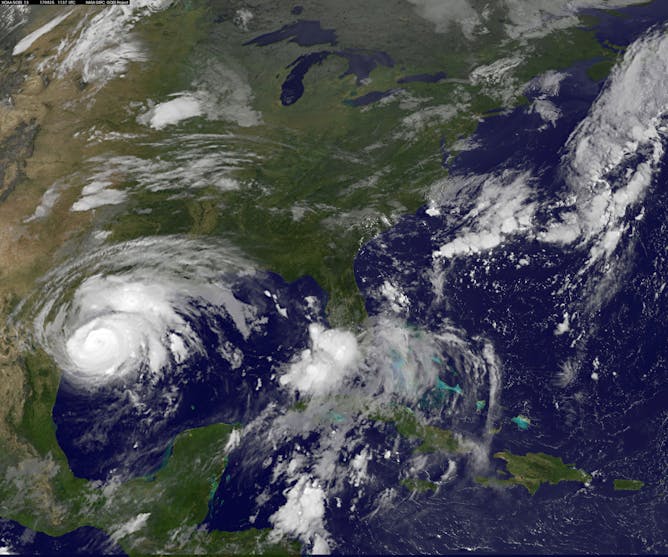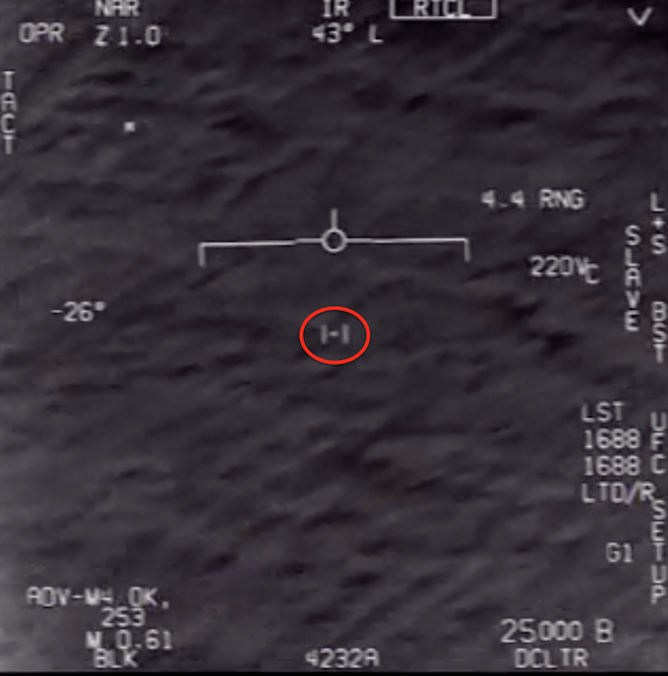Editor's note
|
|
Almost half of Americans would be unable to acquire US$400 for an emergency without borrowing or using a credit card. That’s just one reason why the U.S. is woefully underprepared to cope after natural disasters, says Morten Wendelbo at Texas A&M University. In today’s story, he breaks down some of the nation’s major vulnerabilities when it comes to devastating weather events.
In recent years, Jon McNaughton has become one of the most well-known painters on the political right. His pieces of Barack Obama burning the Constitution and of Donald Trump protecting the flag have delighted his fans, while eliciting ridicule from the left. Philosopher of art John Dyck compares McNaughton’s works to those of other political artists and explores what makes him so distinct from other politically conservative painters.
And, did you know that today is World UFO Day? Over the past seven decades there have been thousands of UFO sighting, with 5 percent that couldn’t be explained. University at Albany SUNY physicist Kevin Knuth says it’s time for us to open our minds. He argues that studying these objects – previous ascribed to crackpots and conspiracy theorists – is a legitimate scientific pursuit, even if you are not a fan of little green men.
|
Aviva Rutkin
Big Data + Applied Mathematics Editor
|

|
|
Top stories
|

Hurricane Harvey approaching the Texas Gulf Coast in August 2017.
NOAA/Handout via Reuters
Morten Wendelbo, Texas A&M University
Large-scale emergencies can be a strain, even in one of the world's richest countries. Population growth, income inequality and fragile supply chains may make the problem worse.
|

Jon McNauhgton’s 2017 painting ‘You Are Not Forgotten.’
Jon McNauhgton
John Dyck, CUNY Graduate Center
McNaughton's works elicit giddy mockery from the left and effusive love from the right. Why do they resonate so strongly?
|

US F/A-18 footage of a UFO (circled in red).
Creative Commons Attribution-Share Alike 4.0 International license.
Parzival191919
Kevin Knuth, University at Albany, State University of New York
About 5 percent of all UFO sightings cannot be easily explained by weather or human technology. A physicist argues that there's compelling evidence to justify serious scientific study and that the skeptics should step aside – for the sake of humanity.
|
Environment + Energy
|
-
Sacoby Wilson, University of Maryland
Many people who live near large-scale livestock farms complain about noxious smells, air and water pollution and health risks. With little help from regulators, they are turning to lawsuits.
-
Anthony J. Marchese, Colorado State University; Dan Zimmerle, Colorado State University
This new and more accurate estimate means that replacing coal with natural gas doesn't do as much to reduce climate change as it should.
|
|
|
|
|
|
|
|
|
|
Trending on site
|
-
David Levari, Harvard University
It's a psychological quirk that when something becomes rarer, people may spot it in more places than ever. What is the 'concept creep' that lets context change how we categorize the world around us?
-
David Prologo, Emory University
Trainers and fitness gurus often tell their charges how to 'burn fat.' But what does that actually involve? Here's a Speed Read on something that actually takes a fairly long time.
-
Luís Fernando Tófoli, Universidade Estadual de Campinas; Dráulio Barros de Araújo, Federal University of Rio Grande do Norte (Brazil); Fernanda Palhano-Fontes, Federal University of Rio Grande do Norte (Brazil)
Ayahuasca has long been used for indigenous healing and spiritual rituals. Now, a Brazilian clinical trial has confirmed that this psychoactive drink can help those with even severe depression.
|
|
|
|
| |
| |
|
|